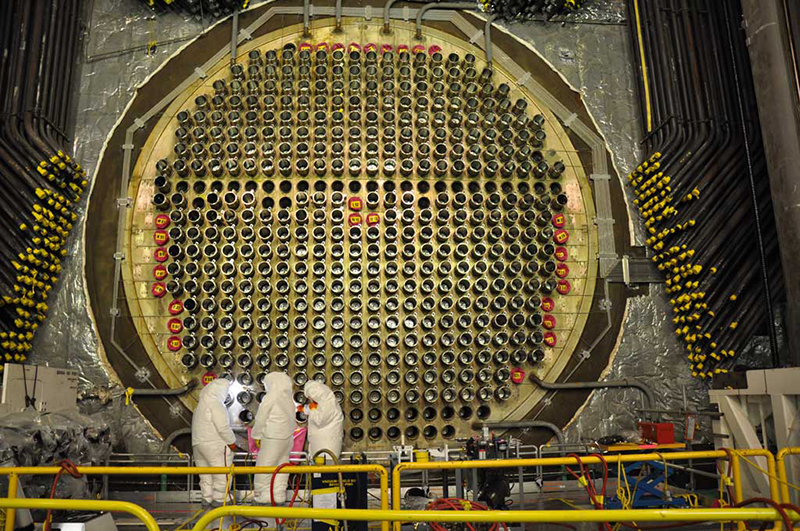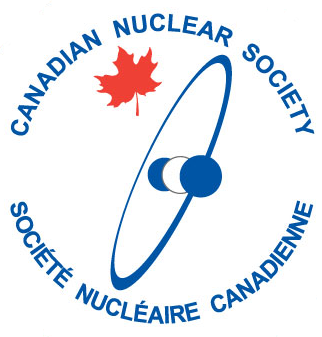Hardened Facilities?

What can we say about Used Fuel storage in Canada in the light of the Ontario Clean Air Alliance’s claims that facilities should be hardened?
Recently an anti-nuclear lobbying group made the following announcement. You may be asked about it, so we have done a bit of research to help you answer those questions.
https://www.cleanairalliance.org/we-need-a-safer-interim-storage-solution-for-ontarios-nuclear-wastes/Before going into the detail of this article it’s important to understand that the posting of it has little to do with the safety of the Great Lakes water and an awful lot to do with achieving the OCAA’s objective of killing the nuclear power industry. An objective it is paid to achieve. They will support anything that might delay projects or increase cost, whether it improves or worsens safety. As an example, I point to the fact that they opposed the OPG DGR, a project that would have reduced the risk of any adverse effect on water quality.
So, let’s unpack what they have said in this article.
The primary statement is “The International Joint Commission’s Great Lakes Water Quality Board is calling for Ontario Power Generation’s (OPG) nuclear waste storage facilities to be “hardened” and “located away from shorelines to prevent them from becoming compromised by flooding and erosion”.
That statement is misleading in many ways.
Firstly, it implies that the commission was specifically concerned about OPG, implying that OPG are not using an industry standard. In fact, the commission made a generic comment to all station operators on the Great Lakes, 23 of which are in the US and 3 are in Canada. There is no indication whatsoever that they were, as OCAA claim, calling for OPG, in particular, to do anything.
Secondly, it suggests that this commission was making a comment about existing facilities. The actual statement the commission made in a video supporting the report was that “regulators and industry consider the importance of water quality when locating waste facilities”. That implies guidance about future facilities not existing ones. And there is no suggestion anywhere that OPG, or indeed, CNSC, did not consider the importance of water quality when the original facilities were built (they would have done) or that there has been any effect on water quality (there hasn’t been).
The main issue that OCAA have built their case for change around is that Germany has 6 “hardened” used fuel storage facilities while in Canada we only use “conventional commercial storage buildings”. But they fail to mention key facts such as
- Most German facilities are not hardened
- The regulator in Germany, thinks there is no reason why the facilities should be hardened, as it offers few safety benefits. (This is revealed in the paper OCAA reference, so they knew this and chose to ignore it even though it is a key point!).
- Hardened storage buildings are not an industry standard. In fact, most US used fuel storage systems store the casks outside and that has proved to be perfectly safe. The containers themselves are appropriately “hardened”.
Additionally, they fail to mention that, despite 50 plus years of experience, the storage of commercial nuclear fuel has never caused any harm to a human, nor damage to the environment outside of its own physical footprint.
So, in response to any questions about the OCAA claims we can say;
- The report did not, as suggested by OCAA, single out OPG for their comments
- The example used of hardened facilities in Germany is not an example of an industry standard approach even in that country and on reviewing this alternate approach the regulator in that country found it offered no real benefits
- The management of Used Fuel in Canada has never had any consequence for human health or any environmental consequence outside of its immediate footprint, meets or exceeds industry standards, is highly regulated and does not need to change.
The commission’s report might also be interpreted to be critical of the NWMO whose plans could include siting of a Deep Geologic Repository close to the Great Lakes when it says that “No interim or permanent facility be located near the Great Lakes or its tributaries”. Basically, this shows the commission has not done its homework properly and does not have the geologic or hydrogeologic knowledge needed to comment on these issues. Very simply, if you place your coffee right underneath your computer, your computer will be safe, put it three feet above and your computer is at risk. Proximity is not the issue, its more complex than that. We will almost certainly come back to this in future blogs.
I hope this information will help you answer questions about this article should they be raised.
Popular Core Business Articles
- The important differences between Hazard, Danger, Risk and Fear when considering a Deep Geologic Repository for used nuclear fuel.
- Deep Geologic Repositories (DGRs)? Distressed purchase or Jewel in the Nuclear Crown
- An article by the Breakthrough Institute
- How do we quickly and succinctly explain why wind and solar are not cheap?
- The Titanic Fallacy

Leave a Reply
You must be logged in to post a comment.